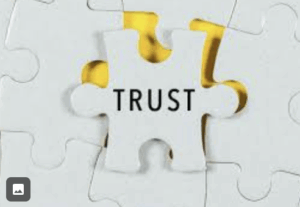Self-confidence plays a crucial role in how we navigate life, influencing our decisions, relationships, and overall well-being. However, it’s not always easy to recognize when we are lacking self-confidence. Often, the signs are subtle and can be easily overlooked. In this blog post, we will explore how to identify low self-confidence, understand its impact on various aspects of life, and discuss how individual psychotherapy can help boost self-confidence.
The Subtle Signs of Low Self-Confidence
Low self-confidence can manifest in various ways, some of which might not be immediately obvious. It can be difficult to identify in ourselves and even more so in others because there are lots of ways to compensate or mask how we are really feeling on the inside. Here are some subtle signs that you might be struggling with self-confidence:
1. Avoiding Challenges
If you find yourself avoiding new experiences or challenges due to fear of failure or embarrassment, it could be a sign of low self-confidence. This avoidance can prevent personal growth and limit your opportunities.
2. Negative Self-Talk
A critical inner voice that frequently tells you that you’re not good enough or capable is a clear indicator of low self-confidence. Words matter and this negative self-talk can erode your self-esteem over time.
3. Perfectionism
Striving for perfection and feeling like a failure when you don’t achieve it can be a sign of low self-confidence. Perfectionism often stems from a fear of judgment and a belief that you are not good enough as you are or that you need to achieve things in order to have value.
4. Difficulty Making Decisions
Indecisiveness or constantly seeking others’ opinions before making decisions can indicate a lack of confidence in your own judgment and abilities.
5. Over-Apologizing
Constantly apologizing, even for things that aren’t your fault, can be a sign that you lack confidence and feel undeserving or unworthy.
The Impact of Low Self-Confidence on Life
Low self-confidence can have far-reaching effects on various aspects of your life, including:
1. Personal Relationships
Low self-confidence can lead to difficulties in relationships. You might struggle with setting boundaries, expressing your needs, or asserting yourself, leading to imbalanced and unhealthy relationships.
2. Career and Professional Life
A lack of self-confidence can hinder career growth. You might avoid taking on new responsibilities, miss out on promotions, or fail to advocate for yourself, all of which can stall your professional development.
3. Mental Health
Persistent low self-confidence is often linked with mental health issues such as anxiety, depression, and chronic stress. The constant self-doubt and negative self-talk can take a significant toll on your emotional well-being.
4. Overall Quality of Life
Low self-confidence can prevent you from fully enjoying life. It can lead to a reluctance to pursue hobbies, socialize, or try new things, ultimately limiting your experiences and satisfaction in life.
How Individual Psychotherapy Can Help
Recognizing and addressing low self-confidence is a crucial step toward improving your overall quality of life. Individual psychotherapy offers a supportive environment to explore and overcome these challenges. Here’s how therapy can help:
1. Identifying Negative Thought Patterns
Therapists can help you identify and challenge the negative thought patterns and beliefs that contribute to low self-confidence. Understanding these patterns is the first step toward change.
2. Building Positive Self-Talk
Through therapy, you can learn to replace negative self-talk with positive affirmations and constructive thoughts. This shift can significantly boost your self-esteem and confidence.
3. Developing Coping Strategies
Therapists provide tools and strategies to help you manage anxiety and stress, which are often linked to low self-confidence. These coping mechanisms can empower you to face challenges with greater resilience.
4. Encouraging Self-Compassion
Therapy can help you cultivate self-compassion and understand that mistakes and imperfections are part of being human. Learning to treat yourself with kindness is essential for building self-confidence.
5. Setting and Achieving Goals
Therapists can work with you to set realistic, achievable goals and celebrate your progress. Achieving these goals can reinforce a sense of competence and confidence in your abilities.
Conclusion
Recognizing low self-confidence can be challenging, but understanding its subtle signs and impact on your life is crucial for personal growth and well-being. If you find yourself struggling with self-confidence, know that help is available. Individual psychotherapy offers a supportive and effective way to build self-esteem and confidence, empowering you to lead a more fulfilling life.
At Kingston & Co Counseling, we are dedicated to helping you overcome the challenges of low self-confidence. For more information on our services or to schedule an appointment, please contact us. We are here to support you every step of the way.







